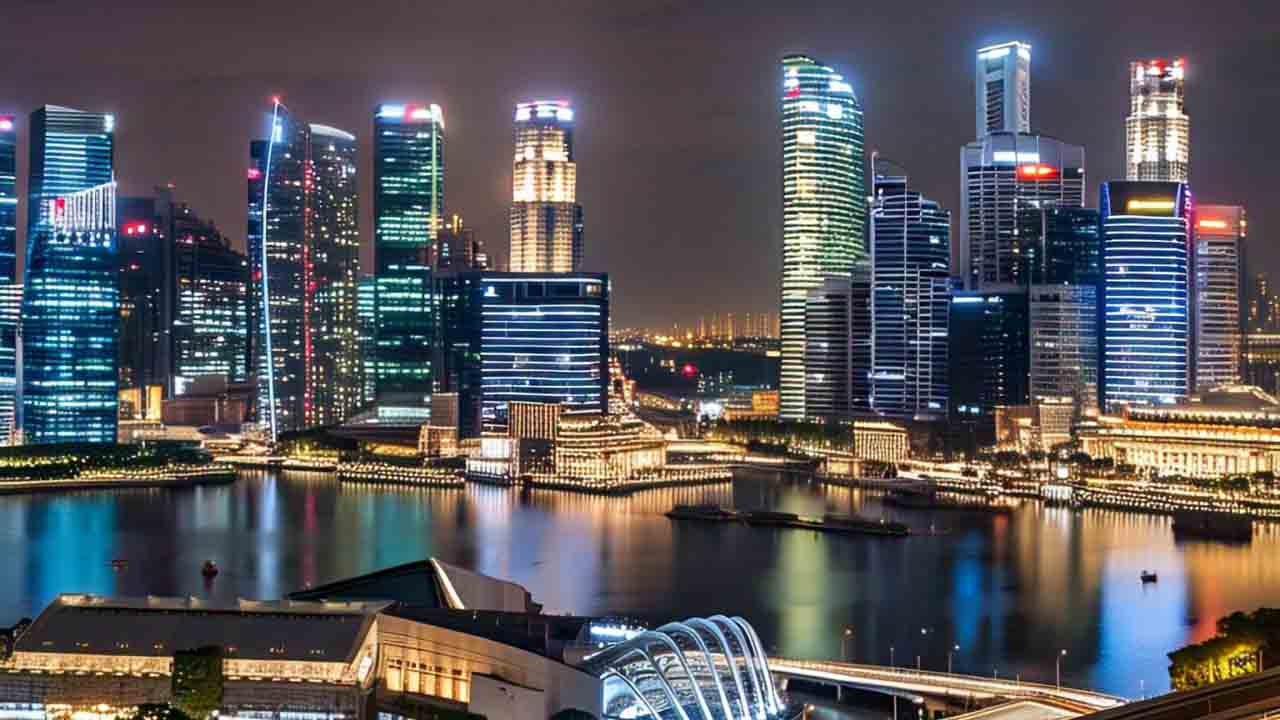
Resilienceapac – The concept of smart cities has taken the global stage as cities worldwide strive to integrate advanced technology to improve the lives of their residents. Cities in Singapore, Japan, and South Korea are leading the way, utilizing smart cities initiatives to enhance urban living, reduce poverty, and improve public services. By leveraging the power of data, artificial intelligence, and sustainable infrastructure, these cities are creating environments that are not only more efficient but also more livable.
Singapore is widely recognized as one of the pioneers in smart city development. The city-state has implemented an array of cutting-edge solutions to ensure urban sustainability and improve citizens’ daily lives. One of the core initiatives is the Smart Nation program, which integrates technology across sectors such as transportation, healthcare, and urban planning. The government uses real-time data collection and analytics to optimize traffic flow, reduce energy consumption, and even monitor environmental conditions.
Additionally, Singapore’s efforts in developing smart infrastructure are evident through projects like the autonomous vehicle trials and the introduction of intelligent sensors in buildings to improve energy efficiency. With these initiatives, Singapore not only enhances the quality of life for its residents. But also tackles social challenges such as urban poverty. By providing equitable access to services and opportunities for all citizens.
Japan’s approach to smart cities blends traditional values with futuristic technology. Cities like Tokyo, Fukuoka, and Yokohama are experimenting. With a variety of smart technologies aimed at improving urban efficiency and environmental sustainability. In Japan, the integration of smart city solutions focuses heavily on sustainable development. With innovations in renewable energy, waste management, and the aging population’s needs.
“The Comedy of Shakespeare: The Highbrow Humor”
For example, Japan’s “Society 5.0” initiative encourages the development of a super-smart society where technology is deeply embedded in everyday life. This vision includes utilizing robotics and AI to assist the elderly. As well as deploying sensors and IoT (Internet of Things) systems in public spaces for safety and convenience. Japan’s commitment to both technological advancement and social responsibility is what makes its smart cities a benchmark for other nations to follow.
South Korea’s smart city projects are some of the most ambitious in the world. Particularly in the city of Songdo, built from scratch as a futuristic urban hub. Songdo is often cited as the quintessential example of a smart city. Where everything from waste disposal to traffic management is integrated with technology. With its advanced sensor networks and data-driven decision-making. Songdo represents a blueprint for future cities that are connected, sustainable, and highly efficient.
Beyond Songdo, South Korea is also investing heavily in the development of smart homes and smart grids. Which are designed to enhance energy efficiency and improve quality of life. The country is also pioneering in the use of big data and AI to improve healthcare services, education, and transportation. Ensuring that the benefits of smart cities extend to every sector of society.
The success stories of Singapore, Japan, and South Korea highlight. The growing potential of smart cities to transform urban life for the better. Through innovative use of technology, these cities are addressing pressing challenges such as population growth, climate change, and urban poverty. As other cities across the world look to emulate their successes. The future of smart cities promises not only to revolutionize how we live. But also how we connect with each other and the environment around us.
Smart cities are not just about technology. They are about creating more sustainable, inclusive, and connected urban spaces that improve the overall well-being of their residents. Singapore, Japan, and South Korea are leading by example. Demonstrating how we can harness technology to build smarter, greener, and more resilient cities for the future
“Digital Twin: A Smart Solution for Logistics”
Resilienceapac - Bali Launches Climate Resilience Hub at the 10th World Water Forum held in May 2024, marking a significant…
Resilienceapac - From TikTok to one of the largest technology firms in the world, ByteDance has quickly risen to prominence.…
Resilienceapac - 5G Powering Asia’s digital future is at the heart of a technological revolution sweeping across the region. Asia-Pacific…
Resilienceapac - At the World Economic Forum (WEF) 2025, ASEAN boosts energy integration by emphasizing the importance of advancing renewable…
Resilienceapac - Mental health policies around the world are facing growing scrutiny, and according to the latest guidance from the…
Resilienceapac - AIIB Boosts Climate resilience by launching its second Climate Adaptation Bond, successfully raising A$500 million in January 2025.…